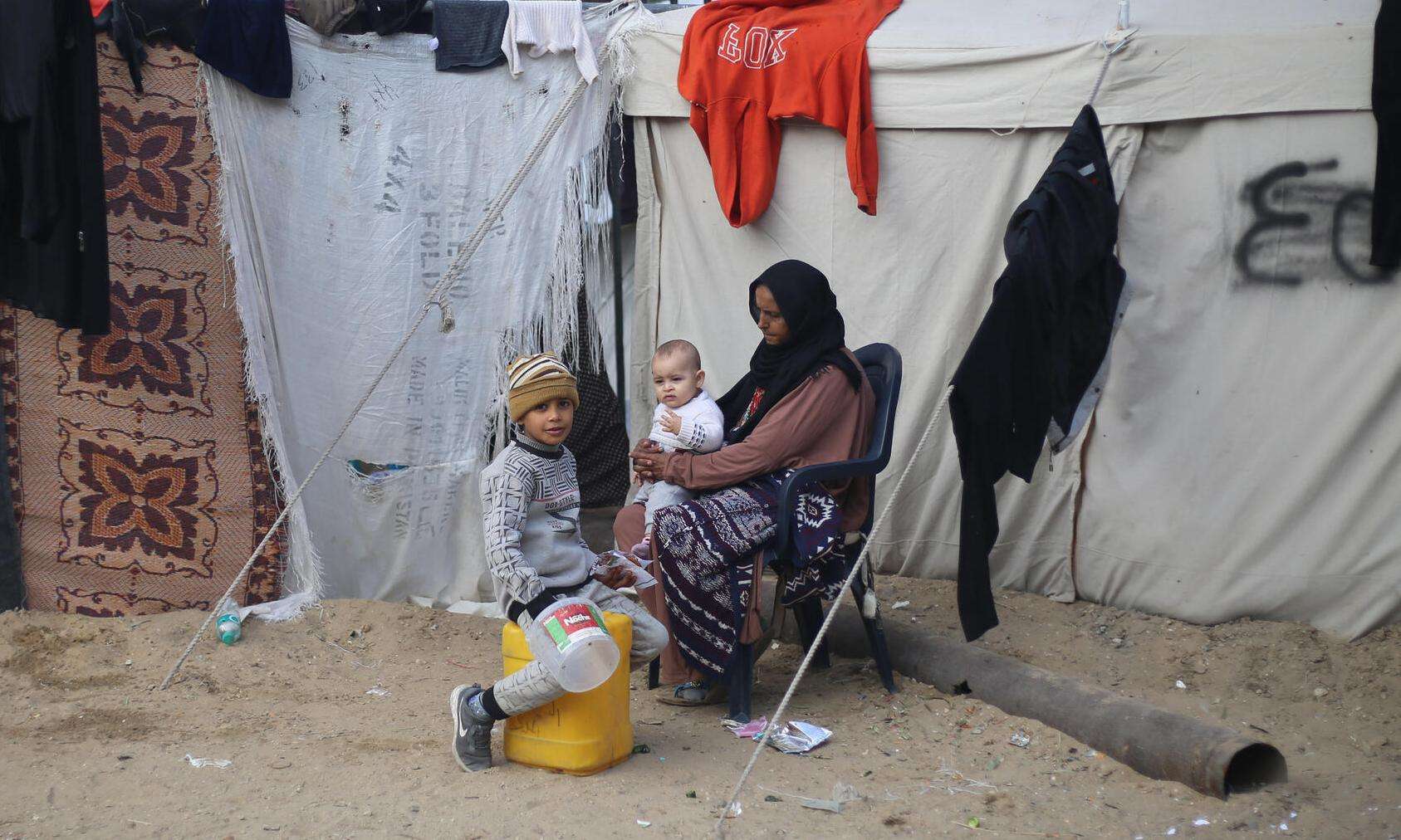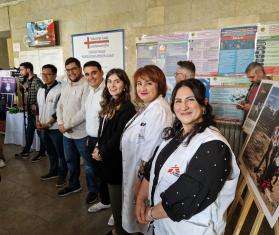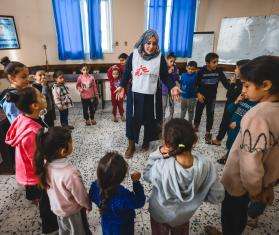Transcript
Hello, this is Ruba again from Gaza. It's really difficult to describe how I feel today or how I feel at all. It's something beyond frustration, depression, or anxiety. We actually don't feel that we are alive anymore. We are just machines trying to pass the days.
On the morning of the 10th of October, I was preparing my kids for school, preparing lunch bags, combing my daughter's hair. And I remember it was 6:30 a.m. when suddenly there was a huge bombing just next to our home. My three kids were really frightened, horrified, and I myself felt the same. We prepared our important documents and left our home for a place we thought would be safer. And we waited.
At 10 a.m., my husband, who is a vascular surgeon, had to leave us because they needed him in Nasser Hospital. After that, the situation unfolded in a very horrifying way. For the whole day, there was huge bombing everywhere. We didn’t know where the rockets were coming or going.
We never imagined that this war would be different.
We hoped that it would take one or two days, three weeks maximum. Even when we had to evacuate our home in Beit Hanoun on the first day—because we received messages and calls from the Israeli army telling us to evacuate our homes—we didn't carry much. We forgot a lot of things and we didn't have a chance to go back to bring anything at all. I, myself, didn't take [many] clothes for me and my husband. My kids had only the necessary things, and then I had to buy everything else. I even forgot my ATM machine card, and I had to wait 50 days before we could go to the bank to bring one.
I still think that the ones who were lost in the [first] few days were very lucky. Nobody imagined that this war would continue through its fourth month. And nobody cares about Palestinians. Nobody cares about our children. Nobody cares about our pain. And we are really frustrated.
I cannot describe how I feel or how my kids feel every day. And as the news gets harder and harder, it's becoming more difficult for everyone to cope. My son was asking me a few days ago, ‘Mom, can we leave Gaza now? I really just want to live.’ Imagine a seven-year-old kid telling you that he just needs to be alive. He was telling me, ‘Mommy, I'm afraid that the siege will come near us, that we will not be able to get food or water. I am afraid that I will die from hunger, or [that] I would see you dying in between my hands because somebody shot you or a quadcopter shot you. And we couldn't save you, mom.’
During the last two weeks, it has been difficult to get any type of [phone or internet] connection, which makes it a struggle for the Red Crescent or Red Cross to even know about the location of airstrikes and to get the wounded to the only working hospital in the city that I am located in.
Currently, I am in Deir al-Balah, where the only [partially] operating hospital is Al-Aqsa. We lack kits, we lack equipment, and access to the hospital is really difficult.
One week ago, tanks were just near that hospital. You can imagine a hospital with 7,000 people who fled their homes and reside there. And now they had to evacuate again.
*Last name withheld to protect privacy





